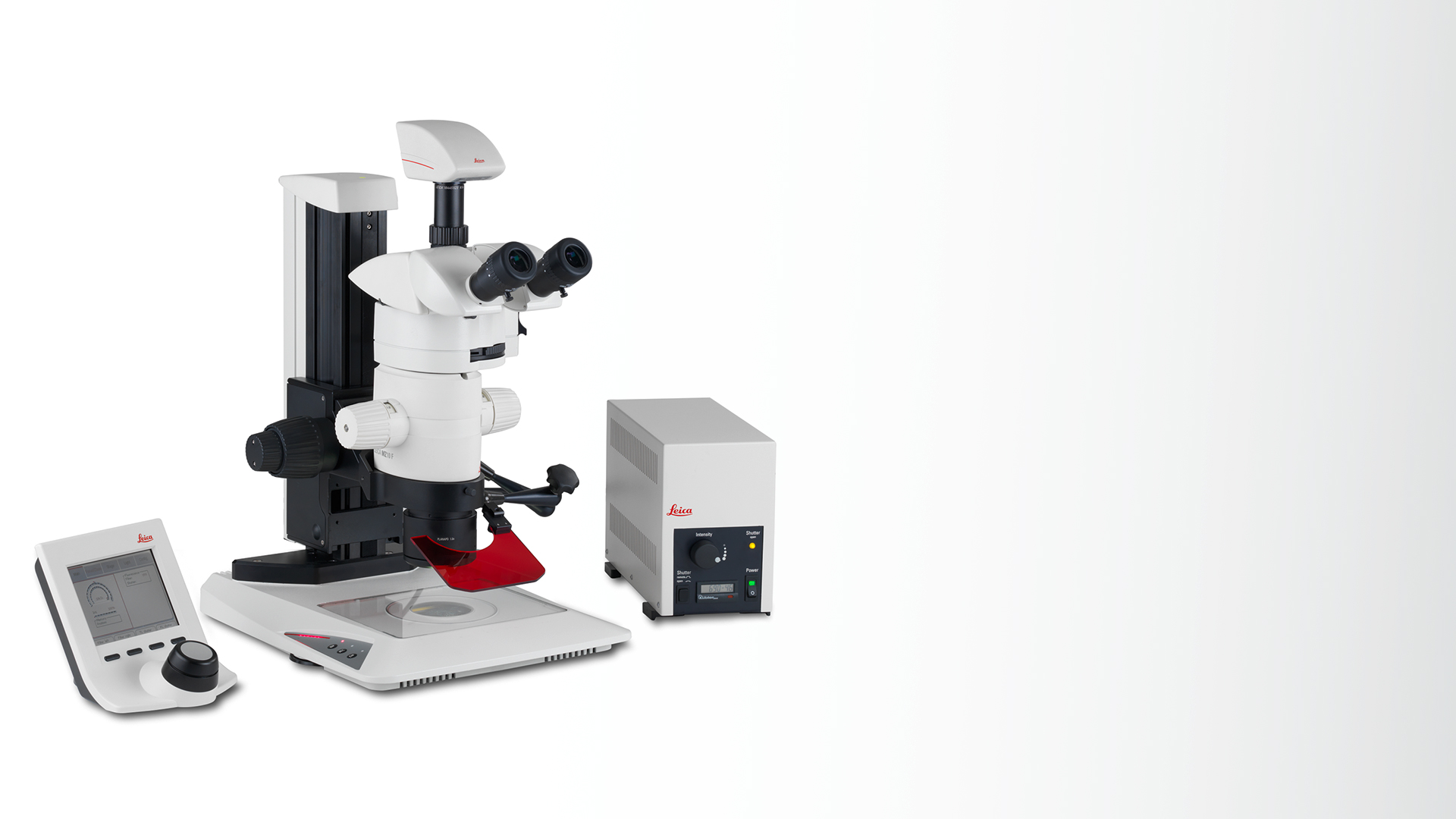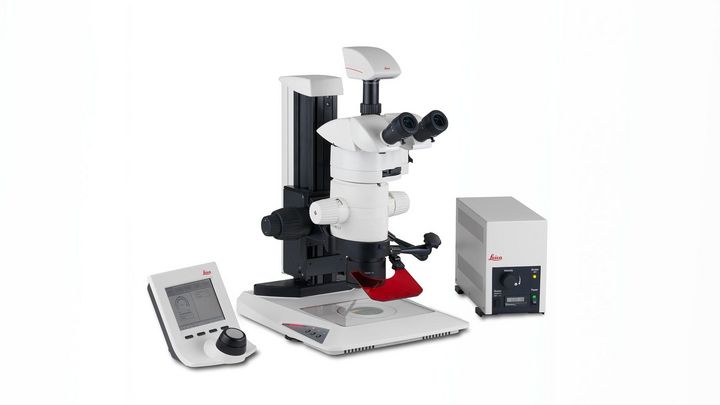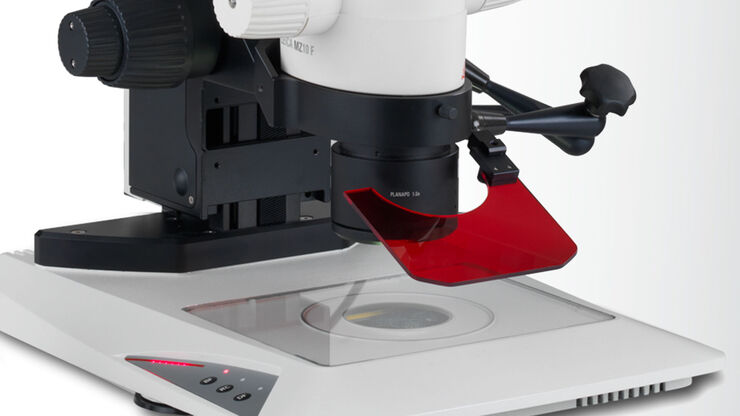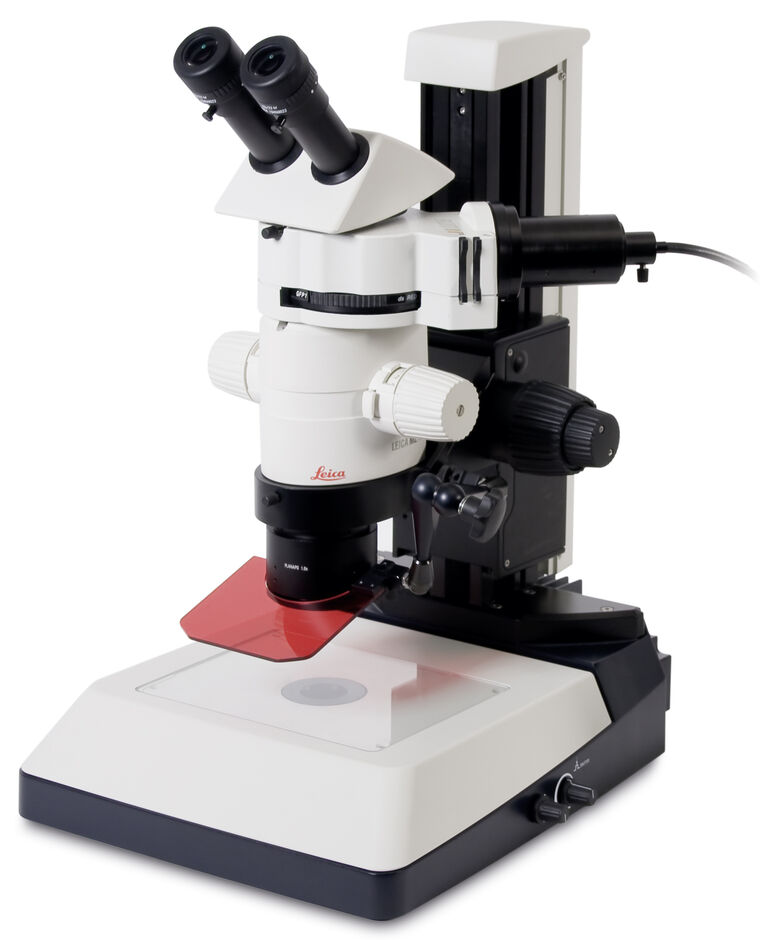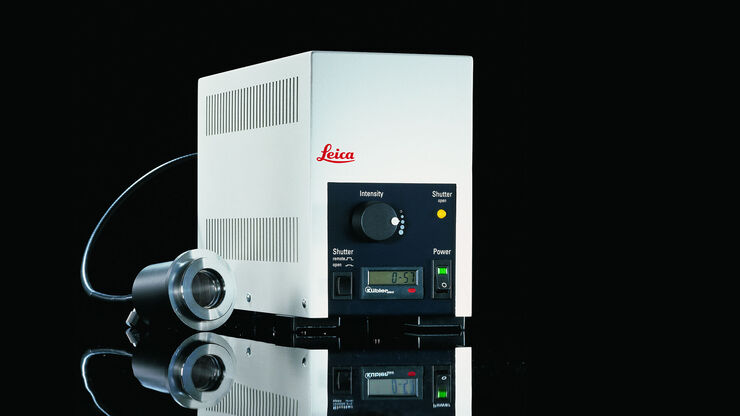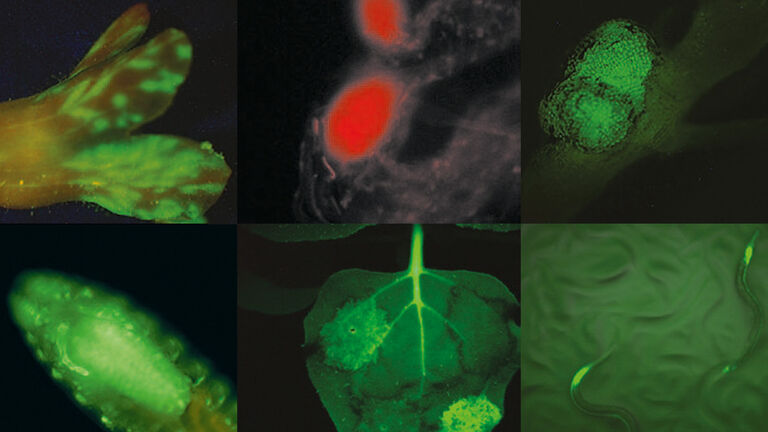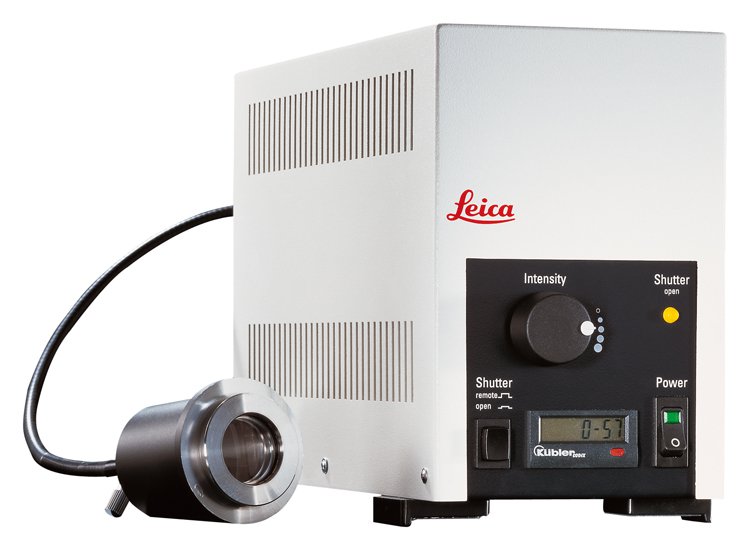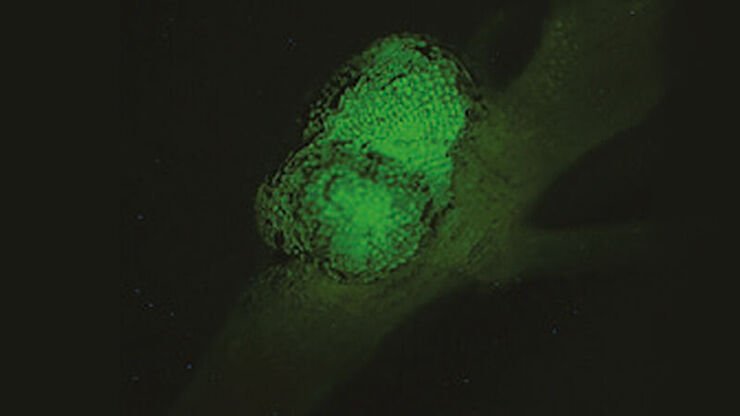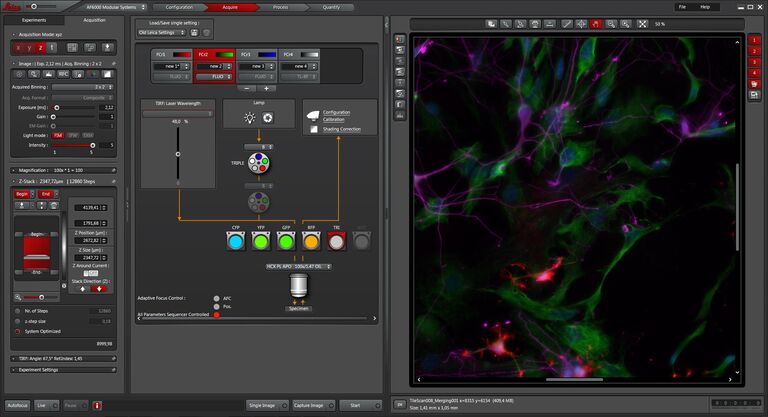MZ10 F Modular Stereo Microscope
The Leica MZ10 F modular stereo microscope with 8x-80x magnification and 375 Lp/mm high resolution provides triple beam technology, which designates a separate beam path specifically for fluorescent illumination for high contrast and detailed fluorescent imaging.
With the FLUOIII™ rapid filter changer, which allows fast interchange between triple beam standard or custom filter sets, the Leica MZ10 F is the ideal tool for fluorescence applications such as gene expression studies or developmental biology applications.
Show popular configurations
Explore and buy pre-configured microscopy solutions in our online shop. Enjoy a seamless online shopping experience.
The Leica MZ10 F Stereomicroscope with Patented TripleBeam™ Technology for Routine Stereo Fluorescence
Outstanding Features
- 10:1 zoom range with high numerical aperture of 0.125 for excellent representation of small structures.
- 8x-80x standard magnification zoom: 8x-80x standard magnification zoom- ideal choice for routine sorting tasks for convenient observation from overview to detail.
- TripleBeam™, Leica’s patented separate beam path for extremely intense fluorescence illumination – variety of standard and custom filters available for specific fluorescence applications.
- Fast interchange: FLUOIII™, Leica’s patented, 4-position, rapid change filter system – allows fast interchange between 4 different filter sets for easy, convenient imaging.
- Wide range of standard filters and availability of custom filters for almost any fluorescence technique.
- Comprehensive user protection against UV radiation.
- Innovative contrast possibilities with Leica’s high-performance transmitted light bases.
Fluorescence Technology for Routine Use
The Leica MZ10 F fluorescence microscope supports researchers while viewing, sorting and selecting fluorescent specimens in the laboratory. With its excellent image contrast, 8× to 80× magnification, modular design and M-series accessories, the Leica MZ10 F fulfills all laboratory requirements with regard to fluorescence.
The 10:1 zoom range and high magnification, spanning from 8× to 80×, make this stereomicroscope the correct choice for quick sorting and screening tasks. The high resolution of 375Lp/ mm and 0.125 numerical aperture (1.0× PlanAPO) provide the possibility to view smallstructures clearly and precisely. Combined with a large choice of illumination systems, main objectives, and ergonomic accessories, the Leica MZ10 F is the ideal solution for routine fluorescence use.
The outstanding feature of the Leica MZ10 F: TripleBeam™, Leica’s patented third beam path. This separate fluorescence illuminator ensures that light at all zoom positions is accurately guided through the correct path to ensure a dark background within the field of view. The high signal-to-noise ratio results in best-in-class contrast and high-quality fluorescence images that are rich in detail and reflex- free, with jet black backgrounds.
UV Protection
The substantial Leica UV precautions protect the user from damage through UV radiation. UV barrier filters are permanently installed in the observation beam paths. In addition, a UV protection screen above the specimen plane, a stray-light protection at the mercury lamp housing, and blank filter cartridges are installed in the empty filter positions.
Accessories to Enhance Your Daily Work
Leica’s comprehensive range of accessories provides a solution for every research requirement. The convenient observation of specimens is supported by the motorized focusing, high-performance transmitted-light stands and a variety of tubes and ergonomic accessories. The Leica MATS thermocontrol stage allows for observation of living samples in a controlled environment.
Intelligent Automation for Digital Fluorescence
For documentation of research results, Leica Microsystems provides a choice of powerful digital cameras. The Leica Application Suite (LAS) offers a multitude of options for automated image acquisition, analysis, measurement and comparative observation of images, processing, assembly, presentation, and sequencing. Efficiency in daily laboratory work is granted by the database modules of the LAS software. With a variety of modules available, LAS offers perfect results for multiple fluorescence recordings in cell biology, genetics, botany, and pharmacology.
